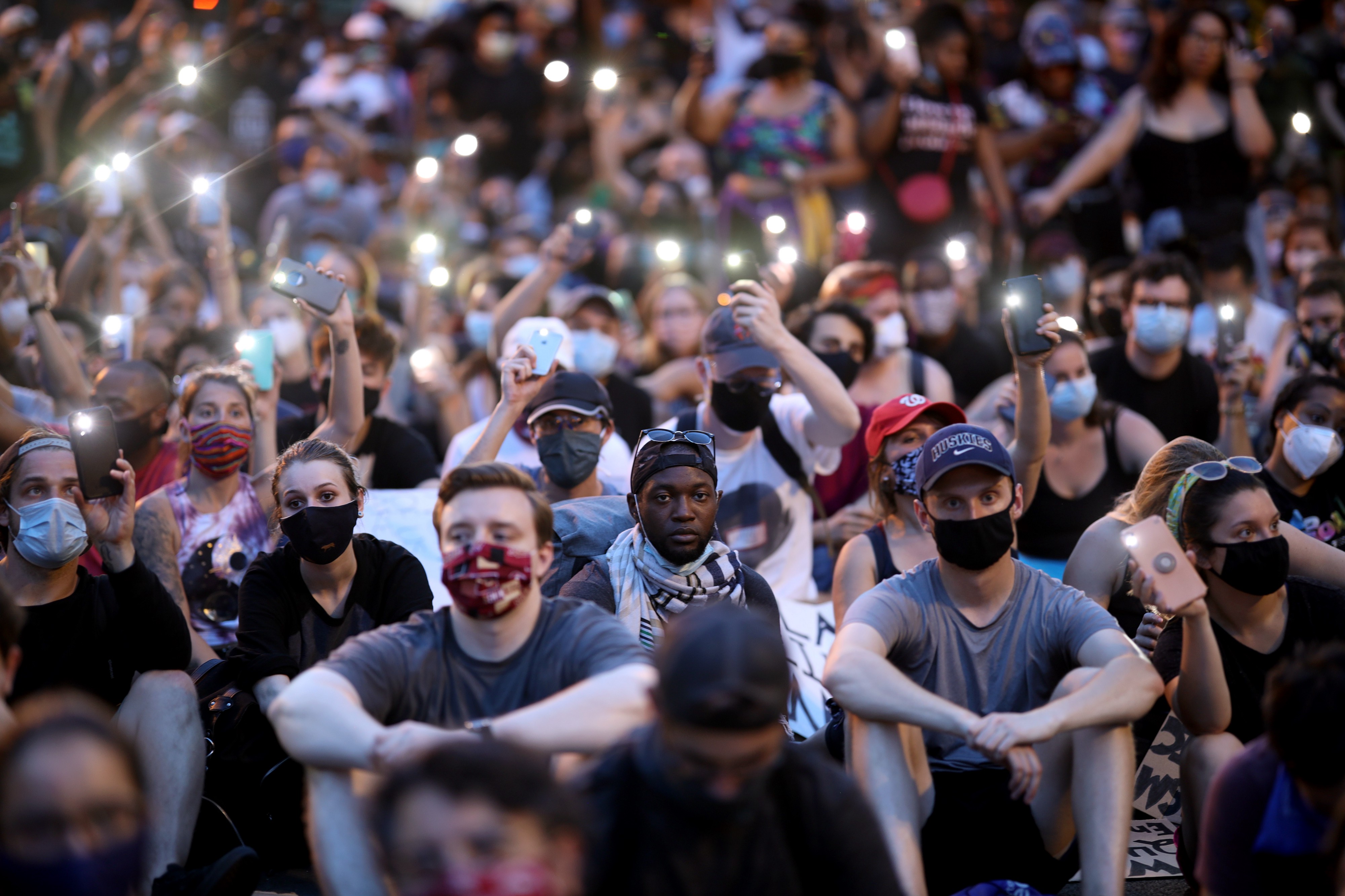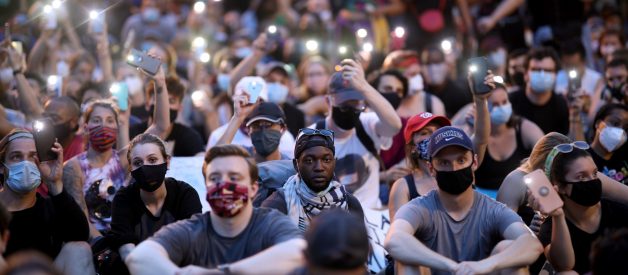It might not be what you think
 Photo: Win McNamee/Getty Images
Photo: Win McNamee/Getty Images
If it wasn?t clear before the pandemic, Amy Cooper, or the senseless police murder of George Floyd, Western society is defined by an ethos of White supremacy. Our institutions uphold it; our laws reinforce it; our justice system makes it plain. Racism, and specifically anti-Black racism, isn?t merely endemic to White supremacy ? under White supremacy, it?s unavoidable.
For White people who wish to be anti-racist, the first step in facilitating change is likely also the hardest: White people need to accept that they?re racist. All White people.
Racism without racists
Very few people would call themselves racist, and getting called out on racist behavior tends to elicit defensiveness. This reflex is so culturally ingrained that its scripts are practically punchlines: ?I don?t see color.? ?Some of my very best friends are Black.?
Donald Trump ? the same president to deride Central American migrants as ?animals? and who threatened martial law to stamp out nationwide protests against anti-Black police brutality ? has declared himself ?the least racist person there is.? As the writer Vicky Mochama points out in Canada?s Globe and Mail, with self-avowed racists in such short supply, one might conclude that racism magically perpetuates itself.
In her bestselling 2018 book, White Fragility, the author and academic Robin DiAngelo argues that one of the functions of White privilege is to advance the myth that racism is an individual sin, as opposed to a collective indoctrination. ?[T]he way we are taught to define racism makes it virtually impossible for White people to understand it,? she writes. ?Given our racial insulation, coupled with misinformation, any suggestion that we are complicit in racism is a kind of unwelcome and insulting shock to the system.?
If Speaking Up Feels Awkward, You?re Doing It Right
We have to unlearn the habit of staying silent about racism
forge.medium.com
Considering the continuum of racism
By framing racism as the scourge of an ignorant few, White people skirt the uncomfortable work of interrogating the perks of their own Whiteness and confronting the structures that uphold those perks. White privilege allows White people to believe that because they grew up poor, or have Black friends, or are descended from European immigrants who were once viewed as non-White, they themselves are exempt from White privilege ? and, by extension, innocents in the perpetuation of racism.
DiAngelo proposes that we instead think of racism as a worldview that?s inevitably formed, and reinforced, by a racist society whose institutions deem Whiteness as a neutral standard. Instead of imagining themselves on either side of a bad/good binary of racist or not racist, she suggests that all White people reimagine themselves as occupying a movable position on a continuum of racism.
It probably isn?t possible to totally escape that continuum, she says; racism is so deeply embedded in society that it informs every facet of our experience and perspective. But by moving away from the binary framework, DiAngelo writes, White people can free themselves from the question of whether or not they are racist and instead ask themselves whether they are actively challenging racism as they go about their lives.
Anti-Black bias within non-Black communities of color
Despite the common belief that living among racial diversity can eradicate racism, not even multiracial communities are exempt from the mechanisms of White supremacy, anti-Blackness, and internalized racism. In my own bicultural, mixed-race family, my White and Brown relatives may have absorbed the racism of their respective environments in vastly different ways, but all have been shaped by it. And, broadly speaking, anti-Black bias is a well-documented phenomenon within non-Black communities of color.
Whiteness itself works in mysterious ways. While I identify as a mixed-race Latina because I have one White parent and one Brown parent, I have personally benefited throughout my life by being perceived as White and moving easily through majority-White spaces. A hybrid racial identity may complicate a person?s perspective on race, but it doesn?t deliver absolution from being racist ? nor from being assigned a ?side? by the dominant society.
So, what now?
In some respects, the policies, practices, systems, and institutions that prop up racism can be chalked up to a failure of imagination. It is easy, even lazy, to maintain a broken status quo because a more productive alternative hasn?t materialized from thin air, gift-wrapped with a jaunty bow and a label marked ?Try me!? But the collective failure to innovate is not proof that innovation is impossible. All it proves is that we need to try harder.
47 Very Specific Answers to ?What Can I Do to Help?
There?s a role for everyone in this fight
forge.medium.com
Challenging the racism in society means acknowledging the racism within ourselves. From there, we will be in a better position to listen, think critically, and do our part to dismantle the racist institutions that enact and reinforce it. This guide by Miyah Byrd and DiAngelo?s book are two excellent starting points.
To get to that acknowledgement, it is crucial that we learn to conceptualize the opposite of racism not as non-racist ideology, but as anti-racist action. ?All policies, ideas, and people are either being racist or anti-racist,? wrote the author and historian Ibram X. Kendi in a 2018 essay for The Guardian. ?Racist policies yield racial inequity; anti-racist policies yield racial equity. Racist ideas suggest racial hierarchy; anti-racist ideas suggest racial equality. A racist is supporting racist policy or expressing a racist idea. An anti-racist is supporting anti-racist policy or expressing an anti-racist idea. A racist or anti-racist is not who we are, but what we are doing in the moment.?
And what a moment we?ve had. In the past weeks and months, we?ve witnessed protests that not only condemn anti-Black police brutality but challenge the very existence of policing. We?ve seen the rise of robust mutual aid networks of neighbors supporting neighbors and a resurgence of organized labor. We?ve observed that adaptive schooling can happen outside the confines of a classroom. We?re beginning to see what an anti-racist society could entail, if we all do the work.
Our imaginations are primed. Now, on to the long and glorious haul.


